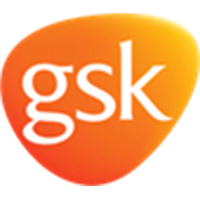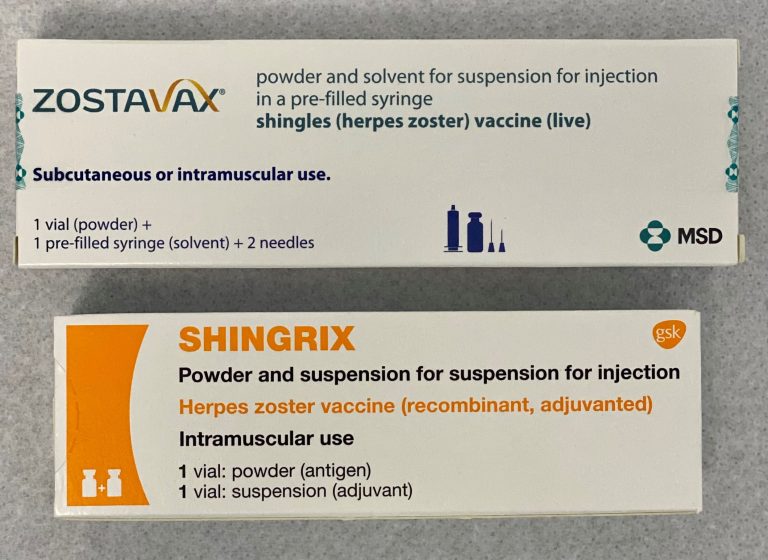GlaxoSmithKline plc (LON:GSK) and Innoviva, Inc. (NASDAQ:INVA) today announced that the European Commission has granted marketing authorisation for Trelegy Ellipta (fluticasone furoate/umeclidinium/vilanterol, ‘FF/UMEC/VI’) as a maintenance treatment in adult patients with moderate to severe chronic obstructive pulmonary disease (COPD) who are not adequately treated by a combination of an inhaled corticosteroid and a long-acting beta2-agonist.
Trelegy Ellipta is the first once-daily single inhaler triple therapy to be approved in Europe. It is a combination of an inhaled corticosteroid (ICS), a long-acting muscarinic antagonist (LAMA) and a long-acting beta2-adrenergic agonist (LABA), delivered once daily in GSK’s Ellipta dry powder inhaler. The licensed strength as delivered is FF/UMEC/VI 92/55/22 mcg.
Eric Dube, Senior Vice President & Head, GlaxoSmithKline plc Global Respiratory Franchise, said, “COPD is a serious lung disease that affects millions of people. Its progressive nature means symptoms can worsen over time with many patients also experiencing frequent debilitating exacerbations. A combination of different types of medicines can be required to achieve treatment goals. Trelegy Ellipta is the first medicine to be approved in Europe that delivers three effective molecules in a once-daily single inhalation. We believe this is an important innovation in COPD management and look forward to making it available for appropriate patients with COPD.”
Mike Aguiar, CEO of Innoviva, Inc. said, “Knowing that appropriate COPD patients will require triple therapy, Trelegy Ellipta affords the convenience of administration of three classes of medicines in a single inhaler. Having all three major classes of combination medication (ICS/LABA, LAMA/LABA, and now single inhaler triple therapy) in the single Ellipta inhaler is an important advance in inhaled therapeutics.”
The first European launch is expected to take place before the end of the year.
For the EU Summary of Product Characteristics please visit: http://ec.europa.eu/health/documents/community-register/index_en.htm. Prior to this being posted online, a copy may be requested from one of the GSK Media or Investor Relations contacts listed in the “GSK Enquiries” section at the end of this document.
About COPD
COPD is a progressive lung disease that is thought to affect around 384 million people worldwide.1
For people living with COPD, the inability to breathe normally can consume their daily lives and make simple activities, like walking up stairs, an everyday struggle.
Long-term exposure to inhaled irritants that damage the lungs and the airways are usually the cause of COPD. Cigarette smoke, breathing in second hand smoke, air pollution, chemical fumes or dust from the environment or workplace can all contribute to COPD. Most people who have COPD are at least 40 years old when symptoms begin.2
Every person with COPD is different, with different needs, different challenges and different goals. Understanding this and providing support to help meet these needs is the foundation of GSK’s work.
About the Clinical Development Programme Supporting the European Marketing Authorisation
The European Marketing Authorisation for FF/UMEC/VI is based on efficacy and safety data from the FF/UMEC/VI development programme, as well as data from studies with the components either alone, or in combination. The results of the phase 3 FULFIL (Lung FUnction and quality of LiFe assessment in COPD with closed trIpLe therapy) study were published in 2017 (Lipson DA et al. Am J Resp Crit Care Med 2017).
Other Regulatory Activity
On 18 September 2017, Trelegy Ellipta was approved for use in the US for the long-term, once-daily, maintenance treatment of patients with chronic obstructive pulmonary disease (COPD), including chronic bronchitis and/or emphysema, who are on a fixed-dose combination of fluticasone furoate and vilanterol for airflow obstruction and reducing exacerbations in whom additional treatment of airflow obstruction is desired or for patients who are already receiving umeclidinium and a fixed-dose combination of fluticasone furoate and vilanterol.
Full US prescribing information, including BOXED WARNING and Medication Guide are available at: https://www.gsksource.com/pharma/content/gsk/source/us/en/brands/trelegy/pi/home.html.
Regulatory applications for once-daily single inhaler triple therapy FF/UMEC/VI have been submitted and are undergoing assessment in a number of other countries.
Important Safety Information for FF/UMEC/VI in the EU
The following Important Safety Information is based on a summary of the Summary of Product Characteristics for Trelegy Ellipta (FF/UMEC/VI). Please consult the full Summary of Product Characteristics for all the safety information.
FF/UMEC/VI is contraindicated in patients with hypersensitivity to either fluticasone furoate (FF), umeclidinium (UMEC), vilanterol (VI) or any of the excipients.
FF/UMEC/VI should not be used in patients with asthma since it has not been studied in this patient population. FF/UMEC/VI is not indicated for the treatment of acute episodes of bronchospasm.
In the event of deterioration of COPD during treatment with FF/UMEC/VI, a re-evaluation of the patient and of the COPD treatment regimen should be undertaken.
Administration of FF/UMEC/VI may produce paradoxical bronchospasm that may be life-threatening.
Cardiovascular effects, such as cardiac arrhythmias e.g. atrial fibrillation and tachycardia, may be seen after the administration of muscarinic receptor antagonists and sympathomimetics, including FF/UMEC/VI. Therefore, FF/UMEC/VI should be used with caution in patients with unstable or life-threatening cardiovascular disease.
Systemic steroid effects may occur with any inhaled corticosteroid (ICS), particularly at high doses prescribed for long periods. These effects are much less likely to occur than with oral corticosteroids. Patients with moderate to severe hepatic impairment receiving FF/UMEC/VI should be monitored for systemic corticosteroid-related adverse reactions.
If a patient presents with symptoms such as blurred vision or other visual disturbances, the patient should be considered for referral to an ophthalmologist for evaluation of possible causes which may include cataract, glaucoma or rare diseases such as central serous chorioretinopathy (CSCR) which have been reported after use of systemic and topical corticosteroids.
FF/UMEC/VI should be used with caution in patients with convulsive disorders or thyrotoxicosis, in patients who are unusually responsive to beta2-adrenergic agonists and in patients with pulmonary tuberculosis or in patients with chronic or untreated infection.
Consistent with its antimuscarinic activity, FF/UMEC/VI should be used with caution in patients with urinary retention or with narrow-angle glaucoma.
An increase in the incidence of pneumonia, including pneumonia requiring hospitalisation, has been observed in patients with COPD receiving ICS. There is some evidence of an increased risk of pneumonia with increasing steroid dose but this has not been demonstrated conclusively across all studies. There is no conclusive clinical evidence for intra-class differences in the magnitude of the pneumonia risk among ICS products.
Beta2-adrenergic agonists may produce significant hypokalaemia in some patients, which has the potential to produce adverse cardiovascular effects. The decrease in serum potassium is usually transient, not requiring supplementation. No clinically relevant effects of hypokalaemia were observed in clinical studies with FF/UMEC/VI at the recommended therapeutic dose. Caution should be exercised when FF/UMEC/VI is used with other medicinal products that also have the potential to cause hypokalaemia.
Beta2-adrenergic agonists may produce transient hyperglycemia in some patients. No clinically relevant effects on plasma glucose were observed in clinical studies with FF/UMEC/VI at the recommended therapeutic dose. Upon initiation of treatment with FF/UMEC/VI, plasma glucose should be monitored more closely in diabetic patients.
This medicinal product contains lactose. Patients with rare hereditary problems of galactose intolerance, the Lapp lactase deficiency or glucose-galactose malabsorption should not take FF/UMEC/VI.
The most frequently reported adverse reactions with FF/UMEC/VI were nasopharyngitis (7%), headache (5%) and upper respiratory tract infection (2%). Other common adverse reactions (reported with a frequency of ≥1/100 to <1/10) include: pneumonia, pharyngitis, rhinitis, influenza, cough, arthralgia and back pain.
GlaxoSmithKline plc – one of the world’s leading research-based pharmaceutical and healthcare companies – is committed to improving the quality of human life by enabling people to do more, feel better and live longer.









































